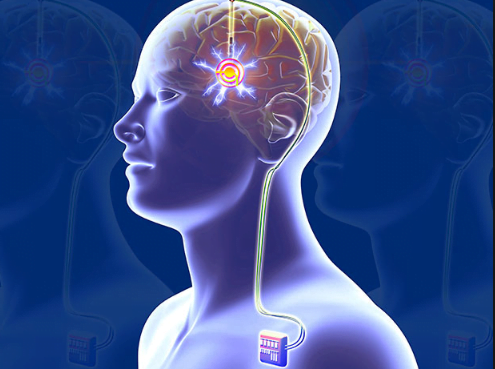How does Cognitive Behavioral Therapy work? This is a question that I’m sure pops into your head once in a while. In order to answer your question, let’s first talk about what exactly Cognitive Behavioral Therapy is.
What is cognitive-behavioral therapy?
Cognitive Behavioral Therapy, otherwise known as CBT, is a therapy technique in which there are most commonly 20 one-on-one sessions. This is a short-term technique where the counselor and individual need to cooperate or work together in order to make progress. CBT can be done as an individual session, as well as a group session. After the sessions, the person or group of people will hopefully be able to improve their own thinking.
CBT is a common talk therapy with a counselor or with multiple people. Of course, there are multiple reasons why people choose to go through cognitive behavioral therapy. Here are a few reasons as to why CBT is done and how it helps other people with their emotional problems.
- It helps other people manage symptoms of mental illnesses they may be experiencing.
- It helps you learn techniques of how to cope or go through a difficult or stressful phase in your life in the best possible way.
- It can help you deal with feelings such as grief, guilt, or loss.
- It can also help you avoid going through a relapse of symptoms of mental illnesses.
- It helps and teaches you how to manage or deal with the emotions you’re experiencing.
- It will help you go through or overcome emotional trauma that has come from verbal or physical abuse.
- It can help improve the relationships between two or more people.
Of course, there are many more reasons for how cognitive behavioral therapy helps with certain problems, but that was just a small list that can show you how powerful and how CBT can help in many difficult situations.
Many people experience mental illnesses, although some don’t try to go and visit a therapist. I definitely recommend you do it if you are going through a tough time. Here’s a list of a few mental illnesses that Cognitive Behavioral Therapy or CBT can help you with.
- PTSD
- Depression
- Anxiety
- Eating disorders
- Obsessive-compulsive disorder or OCD
- Schizophrenia
- Sleep disorders
- Bipolar disorders
Now that we’ve answered the question, ‘what is cognitive behavioral therapy?’ and the situations it can help with, let’s talk about how exactly CBT works and how it can help with stressful situations in your life.
How does cognitive behavioral therapy work?
Many forms of therapy usually go and focus on a person’s past. Compared to them, CBT tries to focus more on how that person currently feels in the present. Of course, sometimes, a person’s past is brought up, and it is understandable if you don’t want to answer any questions about what happened in your life before.
Cognitive Behavioral Therapy mainly focuses on their present emotions and what they’re currently thinking. It helps you see and identify how you think of the world. It challenges your beliefs, thoughts, and helps you think from a different perspective. Everyone has their own opinions and perspectives, and CBT is the perfect way to improve your thinking and help you become your own therapist as well as manage your thinking and stay positive. Although for this to happen, cooperation is needed from every individual from a group or from a single person and the therapist.
It helps you understand yourself and understand how you feel. I’m sure that in some situations, understanding ourselves and how we feel can be quite tough. Cognitive Behavioral Therapy is an opportunity you should take if you ever feel like that.
Can cognitive behavioral therapy be negative?
I personally don’t think that CBT can be negative. You can definitely feel uncomfortable in multiple sessions, especially in your first session with your counselor. But hopefully, you will be able to overcome this feeling of discomfort in later sessions.
You may feel emotions such as anger, stress, or sadness sometimes, and that’s perfectly fine and normal since CBT does help you confront your problems and your fears. Painful experiences may also be discussed, which may cause you to feel very uncomfortable, uneasy, angry, stressed, or sad. In some forms of CBT, such as exposure therapy, causes you to feel very uneasy as it makes you picture yourself in situations you rather wouldn’t be in as it makes you confront your fears.
Working with a skilled therapist will minimize the number of negative feelings you experience during a CBT session or sessions.
How cognitive behavioral therapy can be the most effective
- Don’t expect immediate or instant results from CBT. It’s okay to not feel okay after just one session, although if you’ve gone through multiple sessions and it doesn’t seem to be working, you can always talk to your counselor and address your concerns.
- Honestly is required if you want CBT to help you as much as it can. Most of the things you say will be confidential unless you say something that concerns yours or someone else’s safety.
- Your counselor will ask you to do certain activities such as read or write in a journal or other similar activities. Make sure to do what they say, since these small assignments may actually help you way more than you think.
There are so many more ways you can make the best of cognitive behavioral therapy, but here are just a few simple ones that can help you a lot.
Final thoughts
Don’t forget to visit a therapist or talk to someone if you’re going through a really tough and difficult situation. CBT is definitely an option, and I hope that you have been able to know a lot more about CBT or cognitive behavioral therapy through this article. CBT is a short-term talk therapy that can help in many difficult situations and helps deal with various mental illnesses. It helps someone or a group of people overcome a difficult situation that they may be in.




Share Your Thoughts